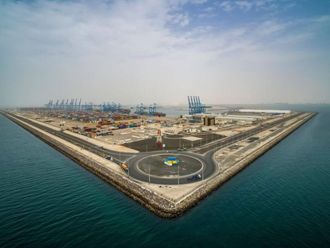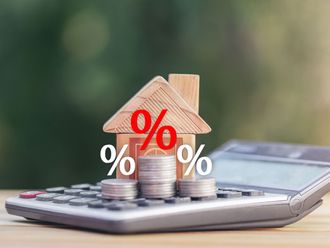Dubai
Policy rate hikes by GCC central banks in response to a 25 basis points (0.25 per cent) increase in interest rates by the Federal Reserve on last week is widely seen as routine monetary policy decision to normalise the exceptionally low interest rates. However, the upward revision on lending rates in across the GCC is expected to increase cost of funds and adversely impact loan growth.
The Fed hike was already largely priced into US dollar Libor [London interbank offered] rates. Domestic liquidity conditions and the spread of interbank rates over Libor will be largely determined by the oil price and the extent of the recovery in oil export receipts.
If the recent recovery in oil prices sustains, this would boost government oil revenues, reducing pressure on government deposits at banks and lowering governments’ financing needs. Analysts say the current liquidity situation in the UAE and other GCC countries are comfortable and the impact of policy rate hike will be relatively muted.
The UAE, Saudi Arabia and Bahrain followed the US in raising key interest rates on Wednesday, following the announcement from the Federal Reserve.
The UAE Central Bank said it was raising its key interest rate by 25 basis points, the same amount as the US. The repo rate for borrowing short-term liquidity from the UAE Central Bank against certificates of deposit has been increased by 25 bps to 1.75 per cent.
“The US Federal Reserve broadly stuck to expectations and closed the year with an interest-rate increase of 25 bps; its third this year. With the UAE dirham pegged to the US dollar, the Central Bank of UAE also followed suit. The interest rate increase will naturally translate to higher borrowing costs and affect the rate-sensitive sectors such as automobiles and real estate,” said Emilio Pera, Partner and Head of Financial Services at KPMG Lower Gulf.
Saudi Arabia’s central bank raised its reverse repo rate, the rate at which commercial banks deposit money with the central bank, by 25 basis points to 1.50 per cent. The Saudi central bank also said it was keeping its repo rate, used to lend money to banks, unchanged at 2 per cent.
UAE liquidity
Banking sector liquidity in the UAE has improved during the first ten months of this year. Strong rise in government deposits in October System-wide deposits in the banking sector increased by 0.3 per cent month on month in October, resulting in the year on year growth rate accelerating to 6.5 per cent from 5.8 per cent in September.
Government deposits rose by a sharp 11.2 per cent month on month in October, and are up 39.3 per cent year on year. The October increase in government deposits could have been driven by the higher oil price, which could also have contributed to the monthly fall in gross government loans from the banking sector. As a result, net government deposits in the banking sector saw a marked rise in October to Dh50.1 billion) from Dh19.7 billion the previous month. “The October monetary data point to a further gradual rise in banking sector liquidity with greater monthly deposit growth than credit,” said Monica Malik, Chief Economist of Abu Dhabi Commercial Bank (ADCB).












